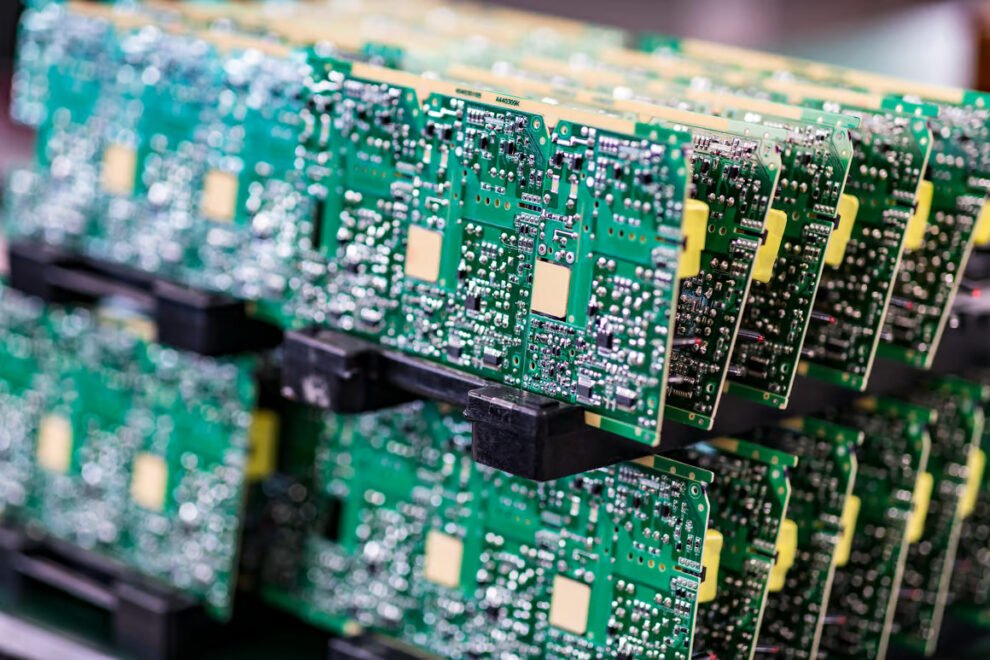With a fresh injection of funds from the European Chips Act, Germany is vying to stabilize the European semiconductor industry within its borders.
Germany is often considered the industrial powerhouse of Europe, and it’s now making plans to become the silicon powerhouse as well. The European Union recently passed the European Chips Act in an effort to double semiconductor fab capacity by 2030. Germany is working to leverage the €43B Chips Act subsidy package and indigenous subsidies to lure much of that capacity within its borders.
Germany Supports European Supply Chain Initiatives
The tech world is still reeling from the most recent set of supply chain disruptions, started in 2018 by the huge jump in demand for automotive and mobile electronics and exacerbated by the COVID-19 pandemic. Both the U.S. and Europe are increasingly concerned about the vulnerability and instability of the electronics supply chain in Asia, leading many countries to push for geographic diversification. Currently, Europe supplies about 10% of the world’s semiconductors and wants to double that number by the end of the decade.
Germany is already a significant player in the European semiconductor industry. Today, one in three semiconductors produced in Europe come from the Saxony region, home of Dresden, where TSMC and partners are planning a €10B facility. Germany is putting its own financial weight behind the European Union’s initiatives as well—and the efforts appear to be working. At least five major new facilities, initiatives, or expansions have been recently announced.
Chip Companies Entering or Expanding in Germany
Intel to Build Two New Fabs in Magdeburg
The Intel investment of €30B ($32B USD) for two fabs in Magdeburg is said to be the largest single direct foreign investment in German history. With Intel’s new installations in Germany joining its fab in Ireland and other facilities in place or planned in Poland, France, Italy, and Spain, Intel intends to deliver end-to-end technology to the European market.

Rendering of Intel fab in Magdeburg, Germany. Image (modified) used courtesy of Intel
The Magdeburg factories will deliver the first-of-its-kind “Intel 4 process technology” in Europe.
TSMC Forms Germany-based Company With Bosch, Infineon, and NXP
TSMC has announced the commitment of €3.5B ($3.8 USD) to a total of €10B ($11B USD) for a fab plant in Dresden. Included in the deal is a €5B ($4.5B USD) subsidy from Germany and investments from Bosch, Infineon, and NXP. The investments will be collected under the umbrella of a so-called European Semiconductor Manufacturing Company (ESMC) in Dresden to deliver 28/22 nanometer planar CMOS and 16/12 nanometer FinFET wafers.
GlobalFoundries Expands Operations in Dresden
U.S.-based GlobalFoundaries will spend €1B ($1.1B USD) to €2.4B ($2.6B USD) to more than double the capacity of its existing Dresden fab from a capacity of 400,000 wafers to more than a million annually. Their capacity expansion will produce for the local power, automotive, and mobile device markets.
Wolfspeed to Erect Fab in Saarland and R&D in Nuremberg
Wolfspeed claims its planned Saarland facility will be the most advanced of its kind in the world. The fab will produce Silicon Carbide (SiC) electronics, which are increasing in demand with the growth in high-voltage, high-speed power applications. This announcement follows an earlier announcement from Wolfspeed to open a SiC R&D center in Nuremberg. Like Intel, Wolfspeed intends to help establish a more complete European supply chain.
Littelfuse Purchases a Fab in Dortmund
Littelfuse is purchasing a 200 mm (9”) wafer fab from Elmos Semiconductor SE in Dortmund to produce power semiconductors. The purchase comes with an experienced workforce and established infrastructure. Having an established workforce may allow a faster ramp-up in production for Littelfuse.
Germany May Need More Skilled Workers
Germany is spending tens of billions of dollars to attract semiconductor business, both for the benefit of the European industry and its own. However, the German Economic Institute recently published a study noting a shortage of 62,000 skilled workers in various professions in the chip industry. TSMC is raising similar concerns for its Arizona, U.S. plant. Building the infrastructure to bolster chip capacity won’t solve any problems if the fabs can’t hire enough skilled workers to run them.
Source: All About Circuit











